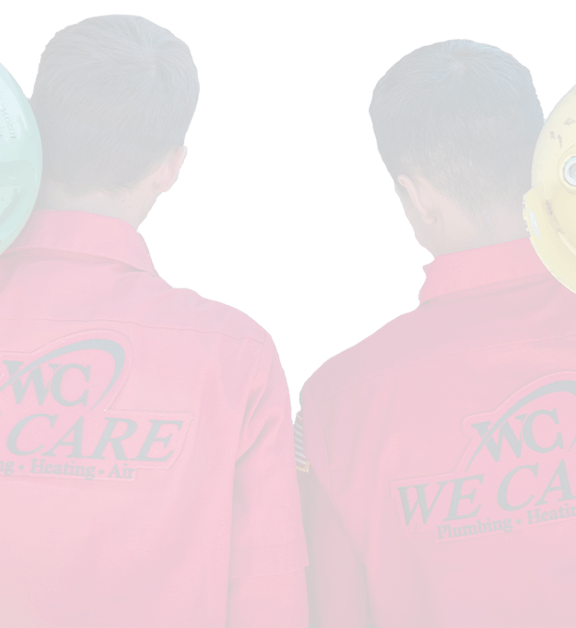Although owning a home is extremely rewarding, it comes with countless responsibilities, and one of the most significant is taking care of your plumbing system. Plumbing repairs are some of the most frustrating issues you might have to contend with. At various points, you’ll probably face a slow drain, a dripping faucet or far worse. The list seems endless. It’s natural to experience such problems as your home ages. However, being aware of some of the most common issues and how to prevent them can save you money and unnecessary frustration. Here are a few of the most common plumbing problems along with the best practices to avoid them and strategies to minimize the aggravation.
Clogged Drains
Generally, drains in your plumbing system are specifically designed for the passage of liquids. Other items, however, may occasionally find their way into the pipes, causing them to clog or blocking them completely. You can easily spot clogged drains when you see water begin to back up as you take a shower or empty your sink.
Slow drains happen when something blocks their flow partially or almost entirely. In showers and sinks, hair is often the culprit. However, other items such as small toys or plastic lids may impede flow through the pipe.
In toilets, the issue often arises when you flush any waste that won’t dissolve down the bowl. Because these solid items can’t pass through the pipes, they stay put, affecting the flow of water down the drain. To prevent toilet clogs, you need to ensure that you only flush away dissolvable substances. If you have children in the house, watch them closely to ensure that they don’t throw large items and toys into the bowl. Definitely avoid putting anything in that has a denser consistency than toilet paper. This includes paper towels and sanitary napkins.
If something gets into your toilet, it’s in your best interest to get it out rather than try to flush it. In showers, using hair catchers can help prevent the build-up of loose strands inside the drain pipe.
Leaky Faucets and Pipes
Leaking pipes and faucets are some of the most common plumbing problems in houses and apartments. Have you seen a puddle below your pipes or heard dripping sounds? These are clear signs of a leaking pipe or fixture.
A washer is a small component that forms the seal on your tap. When this item gets damaged, it may cause your faucet to start leaking. This damage could occur because the washer stiffens, tears or becomes dislodged. Pipes often leak at the joint. This may happen due to shifting, deterioration or high-water pressure.
Natural wear from using your faucets regularly is often hard to avoid. However, you can minimize it by applying less pressure on them while turning your tap on or off. Although leaky pipes are also difficult to prevent, regular inspections and maintenance can help you spot problems early.
Water Heater Issues
It’s not that hard to know when your water heater is in disrepair. For instance, you’ll soon notice a problem when you want to take a warm shower only to get doused by icy cold water. Discolored water coming from your tap and water dripping and puddling are other signs of water heater problems.
Mineral deposits are common causes of water heater issues. These deposits can negatively affect your water heater’s efficiency, thus reducing the hot water supply in your home. Additionally, when air gets trapped beneath these deposits and then heated, strange popping sounds can come from your unit. In extreme cases, these deposits can even cause a tank explosion.
To effectively prevent water heater problems, you need to schedule regular maintenance from a trusted plumbing company. Check your pressure valve regularly and flush the tank occasionally to remove sediment. You can also inspect your tank for leaks and drips that might indicate a bigger problem. In the Murrieta area, We Care Plumbing, Heating and Air can take care of these and other plumbing tasks for you.
Low Water Pressure
This is a common plumbing problem in older houses. However, that doesn’t rule out the possibility of the issue occurring in your new home. Depending on the source of the problem, low water pressure can occur suddenly or happen slowly and then worsen over time. Either way, low pressure makes it difficult to get on with your daily routine, so knowing how to prevent that comes into handy.
Unlike other plumbing problems, low water pressure has a few possible causes. For instance, a break in the main water supply can reduce the pressure of water as it flows to your tap. The same can also happen if there’s a leaking pipe within your home. These situations must be remedied by a professional plumber.
The build-up of sediments and minerals in the showerheads, pipes or faucet aerators is another potential cause of low water pressure. This build-up interferes with the flow, thus leading to a reduction in pressure. To avoid this, you need to consider investing in a filtration system. This system can help you keep sediments and minerals out of your piping system and prevent a future build-up. Regular maintenance can also keep your system functioning as flawlessly as possible.
Running Toilet
Out of the many toilet plumbing problems, a running toilet is among the most frustrating and annoying. Although your toilet will still work, it will continually try to fill the tank, causing an irritating sound and wasting water.
If your toilet runs continuously, it might be because of a problem with the flapper valve. When not fitted correctly, this essential component will allow water to keep leaking out and cause the toilet to perpetually try to replenish itself. Other possible causes include a loose fill tube or an imbalanced float.
Regular inspection and maintenance can help you avoid unforeseen issues with your toilet. A qualified plumber can conduct a thorough examination and ensure all the components are working correctly.
Broken Garbage Disposal
Your garbage disposal is a simple piece of plumbing machinery, but it has several components that can become faulty. Between all the connections, seals, inlets, and outlets, leaks can spring up at any time.
To prevent any damage to your disposal unit, you should avoid putting fatty foodstuff down your drain. Eggshells, celery, grease and poultry skin are some of the items to avoid. Before placing any food inside the disposal system, it’s wise to turn it on and ensure that the water is running. Doing so helps prevent food from sticking inside the unit.
Rely on The Experts
Problems with your plumbing system usually happen when you least expect them. That’s why having a world-class plumbing company on speed dial is vital. At We Care Plumbing, Heating and Air, we’ve been serving the Murrieta community with excellence for more than 20 years. We have highly skilled and experienced plumbers ready to help you out with your plumbing needs. Everything in this article is something we can advise you on preventing or correct if it occurs. You can rest assured that our expertise and state-of-the-art tools will keep your plumbing system running flawlessly for years to come.
Whether you have a problem with your pipes, water heater or garbage disposal, we can fix the issue promptly and efficiently. In addition to providing top-rated plumbing services, we’re also proficient with the complete range of heating and air conditioning services, including installation, repair and maintenance. Contact We Care Plumbing, Heating and Air today for more information on how we can help you realize the full potential of your plumbing system.
Author Bio: Rusty Cochran
 Rusty Cochran is the President of We Care Plumbing, Heating and Air Conditioning. We Care began humbly, operating in his family’s living room. Under Rusty’s strong leadership, We Care has grown from 2 employees to over 200 employees. We Care Plumbing, Heating and Air has gained recognition across the HVAC industry, receiving numerous awards and certifications, including being named the ACCA Contractor of the Year, The Map Presidential Award several times, Angie’s List Super Service Award, NATE certification, and multiple Dave Lennox Awards. LinkedIn Profile
Rusty Cochran is the President of We Care Plumbing, Heating and Air Conditioning. We Care began humbly, operating in his family’s living room. Under Rusty’s strong leadership, We Care has grown from 2 employees to over 200 employees. We Care Plumbing, Heating and Air has gained recognition across the HVAC industry, receiving numerous awards and certifications, including being named the ACCA Contractor of the Year, The Map Presidential Award several times, Angie’s List Super Service Award, NATE certification, and multiple Dave Lennox Awards. LinkedIn Profile





